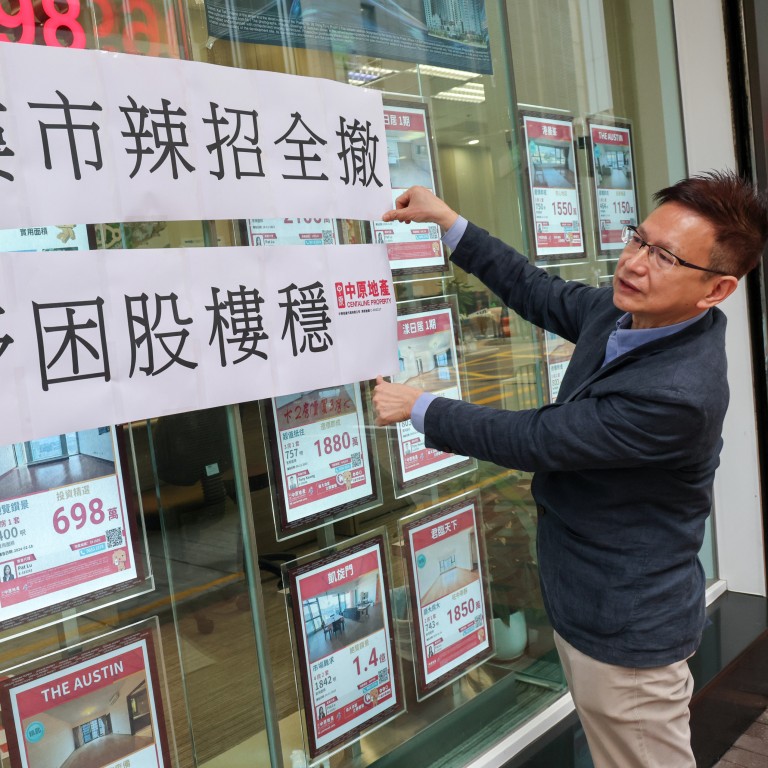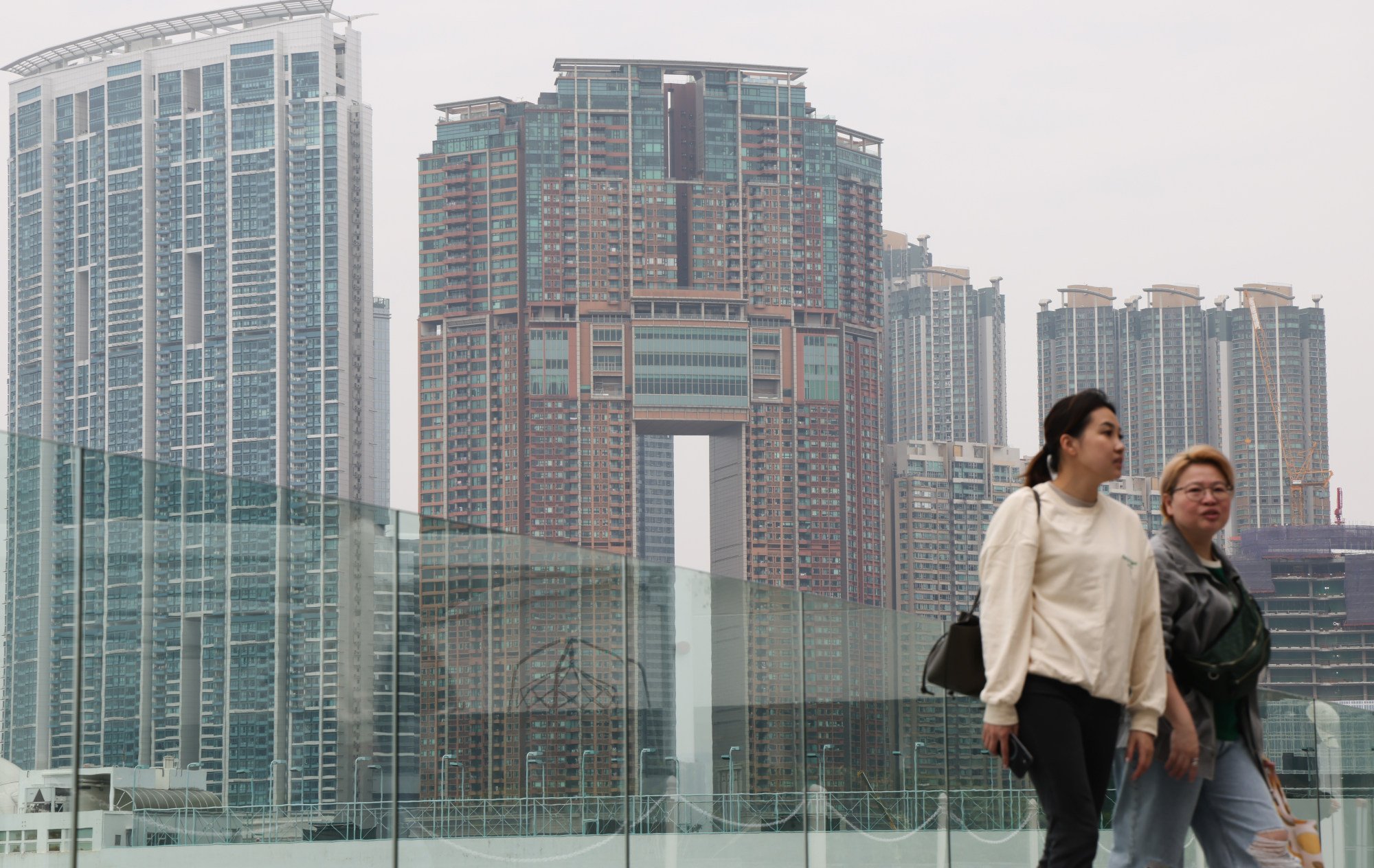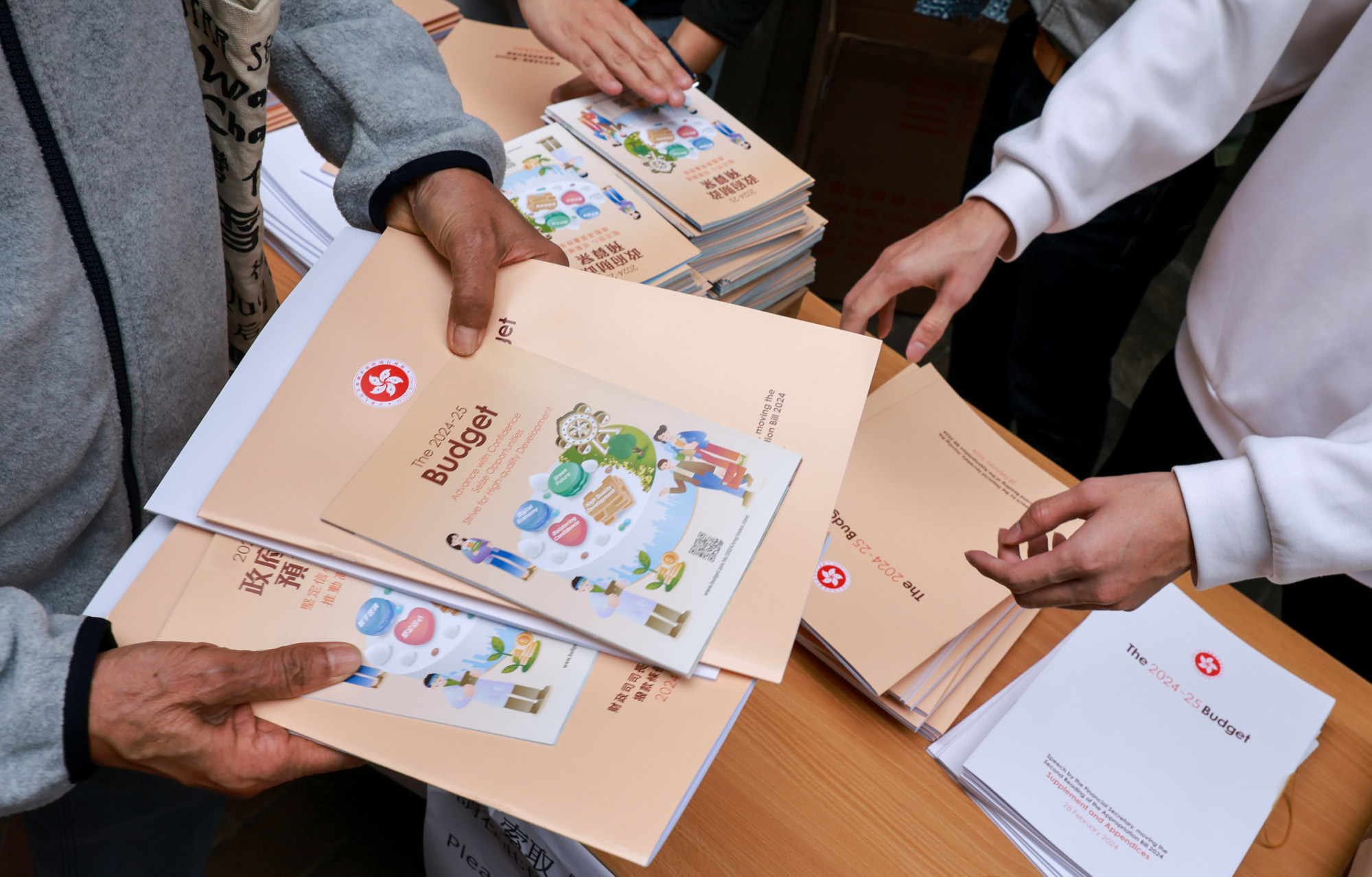
What’s the buzz over the Hong Kong budget? Residents ask if it’s time to buy property and wonder who will pay more taxes
- Property agents say they expect sales to increase as a result of the end of curbs
- Top earners will have to pay an average of HK$75,800 extra a year in salaries tax
“Buyer’s Stamp Duty”, “Special Stamp Duty” and “electric vehicles replacement” became top online searches just hours after Financial Secretary Paul Chan Mo-po delivered his annual budget.
The Post takes a look at the measures that will affect home and car sales and more of the city’s big talking points from Wednesday’s financial blueprint for the year here.
1. Good time to buy a property?
The removal of all restrictions on property transactions was definitely the talk of the town after the decade-old market cooling measures designed to discourage speculation were scrapped with immediate effect.
Property agents said they expected sales to increase as a result of the end of curbs and some offices placed posters outside to promote the changed environment.
The benchmark Hang Seng Index fell by 253 points to 16,536 as the market closed on Wednesday, but the city’s major developers appeared to have done well in the stock market.
New World Development shares jumped 3.2 per cent, Henderson Land Development was up 3.6 per cent, Sun Hung Kai Properties added 0.32 per cent and CK Asset Holdings was 0.14 per cent.
The Monetary Authority will also ease requirements for property loans, also with immediate effect.
The maximum loan-to-value ratio for residential property for owner-occupation will be raised to 70 per cent from 60 per cent for homes valued at HK$30 million (US$3.8 million) or below, and to 60 per cent for properties priced at HK$35 million and above.

2. Who has to pay more salaries tax?
Chan also announced an income tax increase based on the “affordable users pay” principle, which affects about 12,000 of Hong Kong’s wealthiest employees.
The change means top earners will have to pay an average of HK$75,800 extra a year in tax.
The tax is expected to rake in about HK$910 million in extra revenue for the government each year.
The first HK$5 million of net income will continue to be taxed at the standard 15 per cent rate, but any amount above that level will be subject to a 16 per cent rate.
Among those who could be affected is Chief Executive John Lee Ka-chiu, who takes home HK$452,000 a month, an annual income of HK$5.4 million. But he will only have to pay HK$4,260 more under the new tax system.
Hong Kong Monetary Authority chief executive Eddie Yue Wai-man, who earned HK$10 million in 2022, and Securities and Futures Commission CEO Julia Leung Fung-yee, who got HK$8.7 million last year, will also have to pay more in income tax.
Tax hike for top earners, hotel levy revived in Hong Kong budget
The man once dubbed “King of Employees”, Canning Fok Kin-ning, of international conglomerate CK Hutchinson, who earned a massive HK$204 million in 2022, will have to pay an extra HK$2 million in tax, taking his annual bill to HK$32.6 million.
Many property tycoons are also on the list, such as Henry Cheng Kar-shun, the chairman of New World Development, who earned HK$60.3 million last year.
Susanna Hui Hon-hing, the acting group managing director of telecommunication to property giant PCCW is also a top earner, who made HK$52.7 million in 2022, according to the company’s annual report.
3. Tax break now too small to spark change to Tesla?
The first tax breaks for the registration of electric vehicles, which were scheduled to expire at the end of March, will be extended for another two years.
But Chan said the former HK$287,000 concession for buyers who traded in their internal combustion-engined cars will be cut to HK$172,500.
High-end electric vehicles, such as those priced at HK$500,000 before tax, will also be ineligible for concessions under the “affordable users pay” principle.

For Teslas, the most popular electric vehicles in the city, buyers can still get tax rebates on the Model 3, which starts at HK$320,000, and the Model Y at HK345,100, but at a smaller amount than before.
Government figures show tax concessions were granted to 34,445 electric vehicles between 2020 and 2022 and almost all buyers replaced petrol-powered vehicles.
Tesla accounted for 23,820 electric vehicles sold, 70 per cent of the market, followed by German marques Mercedes-Benz with 3,174 and BMW on 1,750.
4. Chan “feels sorry” that sweeteners are modest
The scale of one-off relief measures designed to ease economic hardship among the public was also slashed this year as the government deficit ballooned.
More than 2 million taxpayers could be left feeling disappointed as the salaries and profits tax reduction cap was cut to HK$3,000 from last year’s HK$6,000.
The government will shave off at least HK$3 billion from the cost of the tax break, which cost HK$8.5 billion last year.
The public voiced its disappointment over the cutback in online forums, as it will mean a bigger tax bill.
Chan said he felt “sorry that the scale of concession is a bit smaller than in the past”, but underlined that the government was still battling a massive deficit.
12 things to know about Hong Kong’s budget and how it will affect you
5. Could consumption vouchers be brought back?
It is not going to happen.
Chan decided, in a move that came as no surprise, not to issue any consumption vouchers for 2024-25, a method that has been used over the past three years in a bid to bump up consumer spending.

The move has left many disappointed and some online questioned the rationale behind spending large sums of money on fireworks and drone shows.
But the cost of consumption vouchers was huge and perhaps too big a burden for the government to sustain for another year.
The government gave HK$10,000 to 6.6 million Hongkongers in 2022 – a total bill of HK$66.4 billion.
Chan estimated the consolidated deficit will be HK$101.6 billion for 2023‑24. Financial reserves are expected to be at HK$733.2 billion by the end of March, with a HK$48.1 billion` fall to $685.1 billion by the end of 2024-25.

